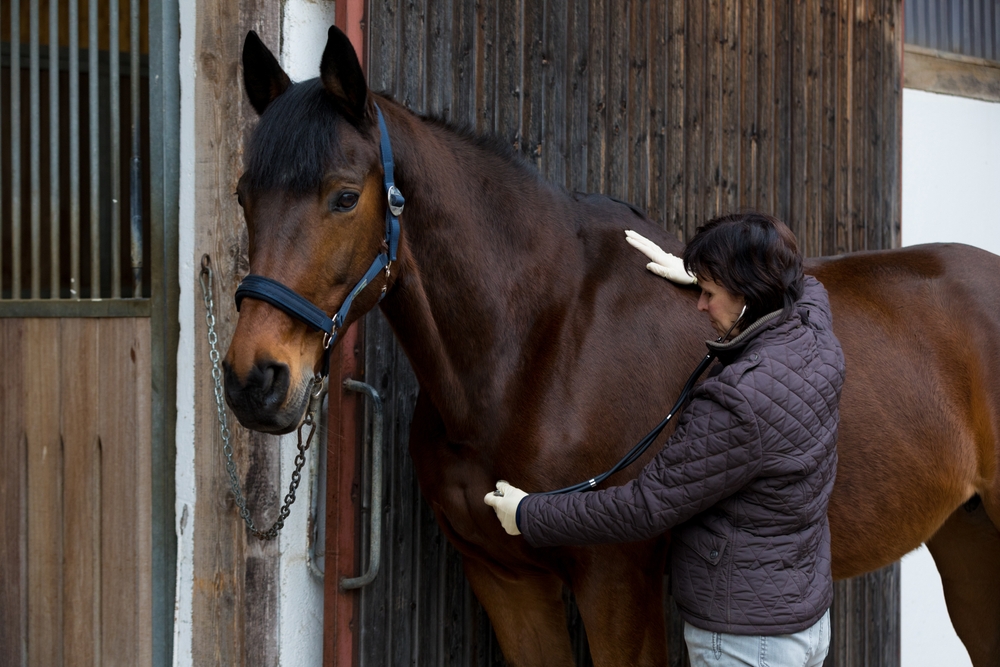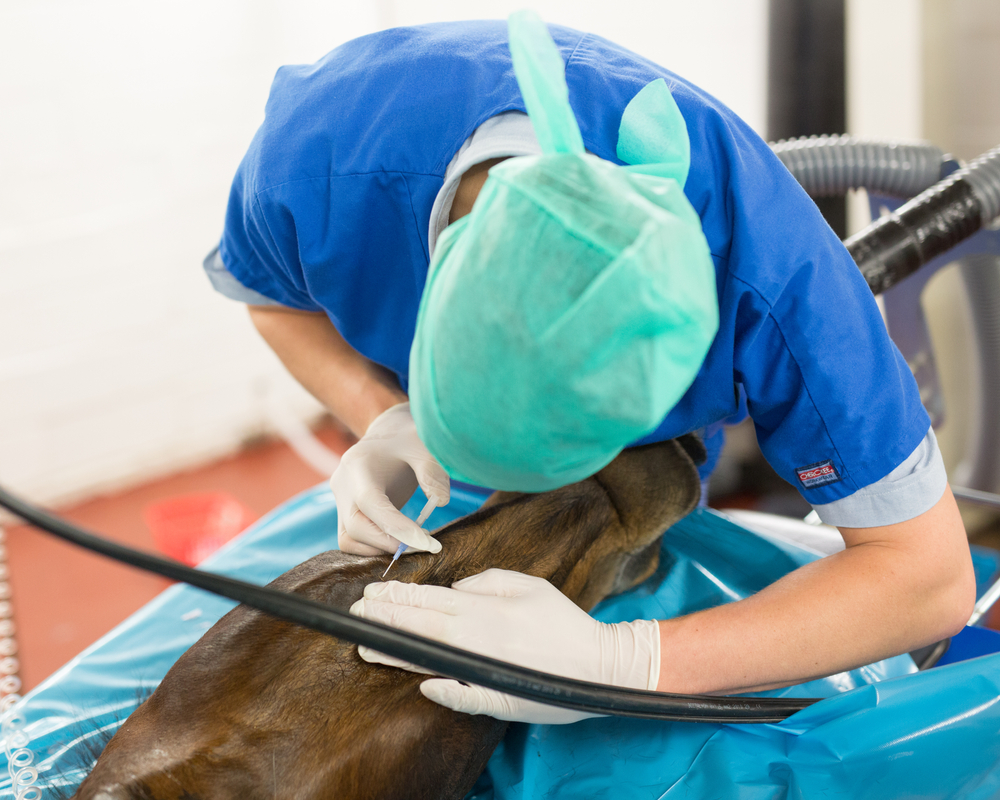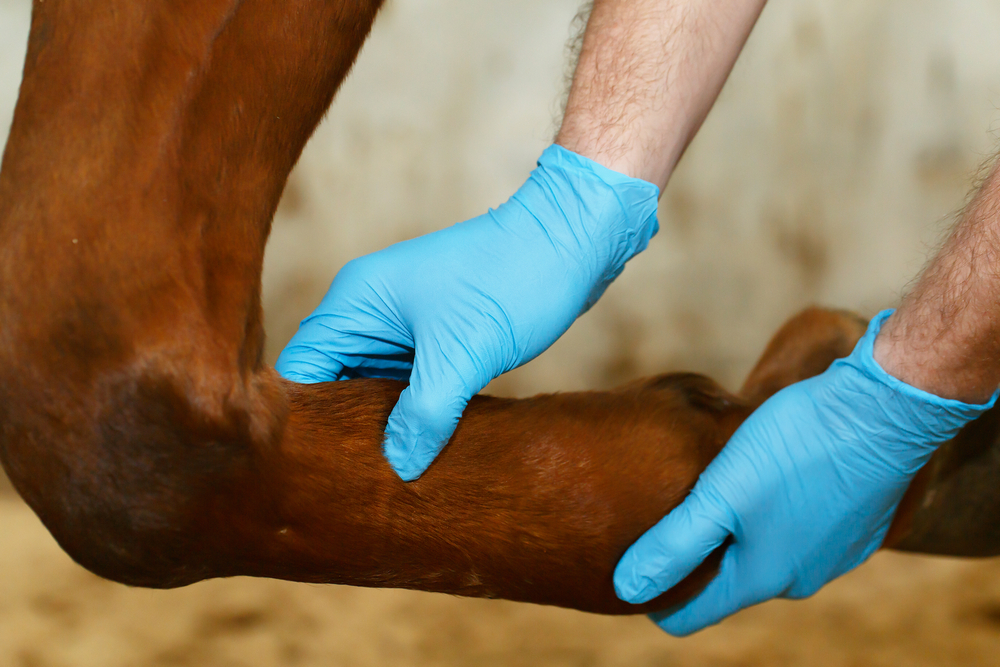At South Valley Equine, we understand that surgery can be a stressful time for both you and your horse. Our comprehensive surgical services combine cutting-edge techniques with compassionate care to ensure the best possible outcomes. Led by Dr. Kyle Heaton, a board-certified Diplomate of the American College of Veterinary Surgeons (DACVS), our surgical team performs everything from routine procedures to complex emergency operations, providing 24/7 availability for critical cases that demand immediate intervention.
Surgery

Understanding Surgery
Equine surgery is a specialized field of veterinary medicine that uses operative techniques to diagnose, treat, and correct a wide range of conditions affecting horses. These procedures range from minimally invasive arthroscopic explorations that use tiny cameras to examine joint structures, to major abdominal surgeries that save horses from life-threatening colic. Modern surgical techniques allow us to repair fractures, remove tumors, correct airway obstructions, and address countless other conditions that cannot be resolved through medical management alone.

Our Surgery Services
Our surgical team provides comprehensive care across multiple specialties, ensuring your horse receives expert treatment regardless of their condition. From life-saving emergency procedures to specialized orthopedic interventions, we combine advanced surgical techniques with compassionate care to achieve optimal outcomes.
Emergency Surgery
Emergency surgery encompasses life-saving procedures performed when immediate intervention prevents death or permanent disability. These include exploratory laparotomy for colic, cesarean sections for dystocia, septic joint lavage, and repair of severe wounds involving vital structures. Emergency surgical procedures are needed when medical treatment fails or when delays would result in tissue death or loss of function.
Orthopedic & Musculoskeletal Surgery
This specialty treats bones, joints, tendons, and ligaments through procedures that restore mechanical function and eliminate pain. Common procedures include arthroscopy for bone chip removal and OCD treatment, fracture repairs, joint fusion, and tendon surgeries. These procedures are recommended when lameness persists or when imaging reveals structural damage requiring surgical intervention.
Respiratory Surgery
Respiratory procedures correct upper airway abnormalities that restrict breathing and limit performance. These procedures become necessary when horses show exercise intolerance, abnormal respiratory noise, or when endoscopy reveals anatomical problems affecting airflow.
Soft Tissue Surgery
Soft tissue surgery addresses conditions affecting organs, skin, and reproductive systems that don’t involve bones or joints. Common procedures include routine and cryptorchid castrations, hernia repairs, tumor removals, and specialized procedures like ovariectomy or bladder stone removal. We also perform complex wound reconstructions, umbilical resections, and delicate repairs of breeding injuries in mares..
Eye Surgery
Ophthalmic surgery preserves vision and eliminates ocular pain through procedures ranging from eyelid repair to complete eye removal. We perform corneal laceration repairs, place cyclosporine implants for uveitis control, create conjunctival grafts for deep ulcers, and enucleate severely damaged eyes. Eye surgery is warranted when trauma compromises eye structures, medical management fails, or progressive disease threatens vision that surgical intervention could preserve.
Our Surgery Process
Meeting Your Surgical Team
Your horse’s surgical experience begins with a comprehensive consultation that includes a physical examination, diagnostic imaging, and laboratory tests if needed. This thorough assessment allows us to determine whether surgery is the most appropriate option and which specific procedure would best address your horse’s needs.
Planning Your Horse’s Procedure
Following the initial evaluation, we develop a personalized surgical plan tailored to your horse’s specific condition, age, and intended use. This plan includes detailed information about the recommended procedure, expected outcomes, potential risks, and estimated recovery timeline. We provide comprehensive cost estimates and discuss scheduling options that work with your timeline.
Surgery Day
On surgery day, our experienced team follows strict protocols to ensure your horse’s safety and comfort throughout the procedure. Pre-surgical preparation includes appropriate fasting, pre-operative medications, and careful anesthetic planning based on your horse’s individual needs. Dr. Heaton and our skilled surgical team perform the procedure using advanced equipment and techniques while monitoring your horse’s vital signs continuously.
Helping Your Horse Heal at Home
Post-surgical care is crucial for optimal healing, and we provide detailed instructions tailored to your horse’s specific procedure. This includes guidance on stall rest duration, hand-walking schedules, bandage changes, and medication administration. We teach you how to monitor the surgical site for signs of complications and when to contact us with concerns.
Tracking Your Horse’s Healing After Treatment
Regular follow-up appointments allow us to monitor your horse’s healing progress and adjust the treatment plan as needed. These visits typically include incision checks, imaging studies to assess bone or soft tissue healing, and gradual return-to-work protocols. Our commitment to your horse’s recovery extends well beyond the surgery itself, with ongoing support until full function is restored.
Why Choose Us for Surgery
At South Valley Equine, our surgical excellence stems from the unique combination of board-certified expertise, advanced facilities, and genuine dedication to each patient’s well-being. Dr. Kyle Heaton brings specialized surgical training and experience to every procedure, from routine castrations to complex orthopedic reconstructions. Our 24/7 emergency availability means we’re here when you need us most, whether dealing with midnight colic or weekend injuries. What truly sets us apart is our comprehensive approach to surgical care. We don’t just perform procedures; we partner with you throughout the entire process, from initial consultation through complete recovery.

Witness Your Horse Heal With Surgery at South Valley Equine
Watching your horse suffer from lameness, struggling with performance issues, or facing a medical emergency can leave you feeling helpless and anxious. You need a surgical team that combines advanced expertise with genuine compassion, professionals who understand that your horse isn’t just an animal, but a cherished partner deserving the highest level of care. At South Valley Equine, Dr. Kyle Heaton and our dedicated surgical team provide the specialized solutions your horse needs to return to comfort and performance.
Don’t let another day pass wondering if surgery could help your horse. Follow us on Facebook, Instagram, YouTube, and LinkedIn to see real success stories from horses who’ve returned to the arena, trail, and pasture after surgical treatment. Call 801-254-2333 today to schedule your consultation and discover how our surgical expertise can make a difference in your horse’s life.
FAQs
How long does colic last in horses?
Colic varies significantly depending on the underlying cause and severity of the condition. Mild gas colic might resolve within a few hours with appropriate medical treatment, while severe surgical colic cases require immediate intervention to prevent life-threatening complications. If your horse shows colic symptoms for more than an hour despite initial treatment, immediate veterinary evaluation is crucial to determine whether emergency services are needed.
How long can a horse live with a twisted gut?
A horse with a twisted gut (intestinal volvulus or torsion) faces a life-threatening emergency requiring immediate surgical intervention. Without surgery, horses typically survive only 6-12 hours as the twisted intestine loses blood supply, becomes necrotic, and releases toxins. Even with prompt surgical correction, the prognosis depends on how much intestine is affected and how quickly treatment begins.
Can you ride a horse after hip replacement surgery?
Hip replacements are extremely rare in horses due to their size and the biomechanical challenges involved. Recovery from any hip-related procedure requires extensive rehabilitation over many months, and return to riding depends on the specific procedure performed and the individual horse’s healing. Your surgeon will provide detailed guidance on whether and when riding might be possible based on your horse’s specific surgical outcome and intended use.
Can horses have C-sections?
Yes, horses can have cesarean sections when natural delivery isn’t possible or would endanger the mare or foal. Our surgical team performs emergency c-sections for conditions like dystocia, abnormal foal positioning, or uterine torsion that prevent normal delivery. We will let you know if your horse needs a C-section or if natural birth would be better.